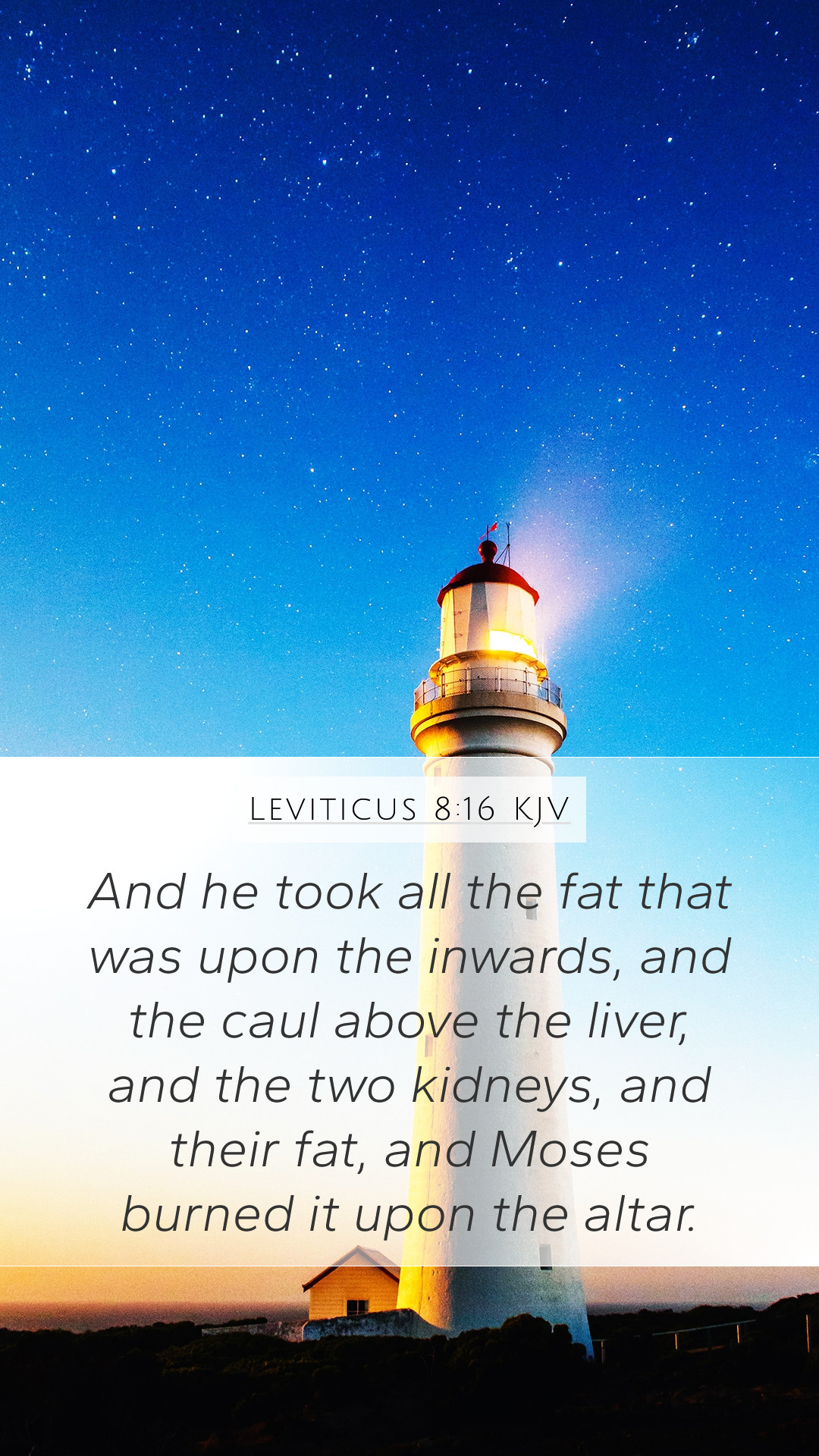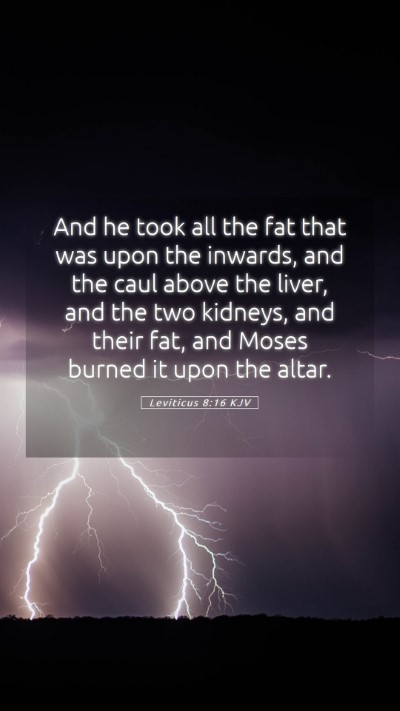Bible Verse Meaning and Commentary on Leviticus 8:16
Leviticus 8:16 states: "And he took all the fat that was upon the inwards, and the caul above the liver, and the two kidneys, and their fat, and Moses burnt it upon the altar."
Summary of the Verse
This verse describes part of the sacrificial rituals undertaken during the consecration of Aaron and his sons as priests. Specifically, it outlines the handling of the offerings, particularly the fat portions which were burned on the altar, illustrating the solemnity and sacredness of the priestly appointment.
Insights from Public Domain Commentaries
This analysis combines interpretations from three prominent commentaries: Matthew Henry, Albert Barnes, and Adam Clarke.
Matthew Henry's Commentary
Understanding the Sacrificial System
- Holiness of Offerings: Matthew Henry emphasizes the importance of presenting the best parts of the animal as offerings to God. The fat represents the richness and bounty of God's creation.
- Symbolism of the Fat: Fat in biblical texts often symbolizes abundance and the divine favor of God, serving as a fitting offering for the priest's consecration.
- Consecration Rituals: The act of burning fat upon the altar signifies a complete surrender to God, which is essential for those set apart for service.
Albert Barnes' Commentary
Significance of Priestly Duties
- Covenantal Relationship: Barnes points out that this act reinforces the covenantal relationship between God and His chosen people, where priests serve as mediators.
- Details of Offerings: He notes that the specific mention of various parts of the animal shows existing practices during that era, underlining the detailed nature of the Mosaic Law.
- Sacrificial Theology: This suggests a theological perspective of sacrifice in the Old Testament as pivotal for atonement and divine encounter.
Adam Clarke's Commentary
The Role of Aaron and His Sons
- Priestly Initiation: Clarke explains that the burning of the fat was a critical act in the initiation of Aaron and his sons, highlighting their roles in leading worship and sacrifice.
- Historical Context: He provides context by outlining the importance of sacrifices in the law and how they act as a precursor to New Testament understandings of sacrifice in Christ.
- Symbolic Cleansing: The fire consuming the offerings represents purification not only of the offering but also prepares the priests for their divinely ordained duties.
Bible Study Insights
In studying Leviticus 8:16, one can draw various insights applicable to modern faith practice:
- The importance of offering the best to God in worship.
- Understanding the depth of ritual as a means of connecting humanity with the divine.
- The concept of sacrifice as a precursor to Christ's ultimate sacrifice, enriching our grasp of New Testament teachings.
Cross References
This verse is related to several other scripture verses that provide a deeper understanding of the themes presented:
- Exodus 29:22: Details further about the sacrifices and the roles in the consecration of priests.
- Leviticus 3:16: Discusses the components of offerings and God's expectations.
- Hebrews 10:10: Connects the practice of Old Testament sacrifices with Christ's ultimate sacrifice for humanity.
Application of the Verse
For those seeking Bible verse explanations and insights into understanding Scripture, Leviticus 8:16 serves as a reminder of the humility necessary in recognition of God’s holiness. It encourages readers to reflect on how they present themselves before God and the offerings of their lives.
Concluding Thoughts
Through the lens of ancient worship practices and the priestly role formed in Leviticus, modern believers can find rich Bible study insights regarding the nature of worship, sacrifice, and divine relationship echoed throughout scripture.


